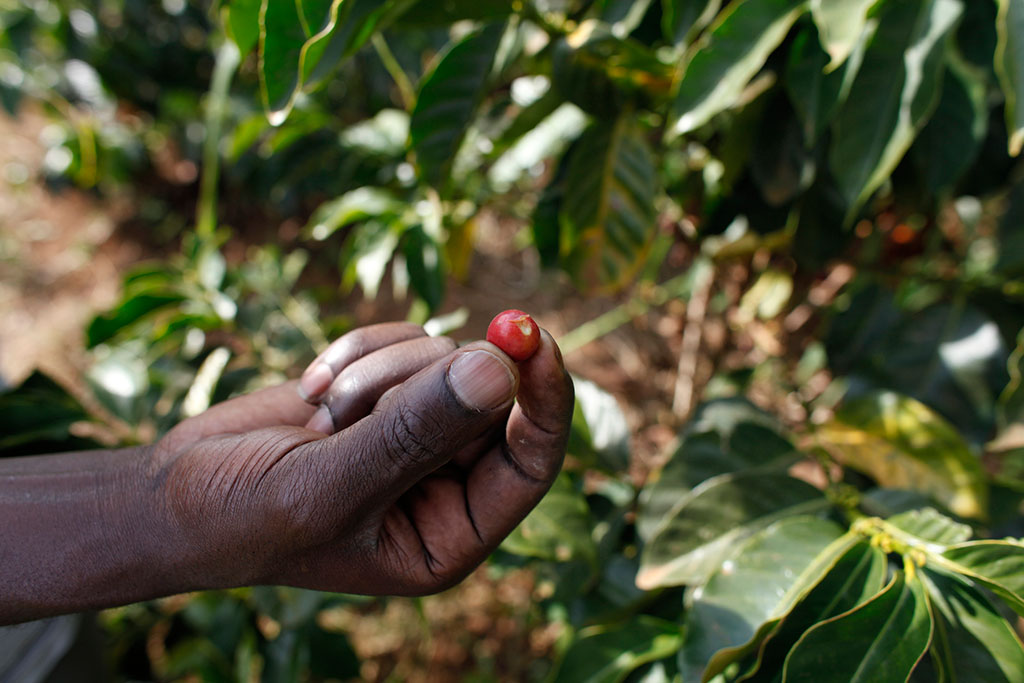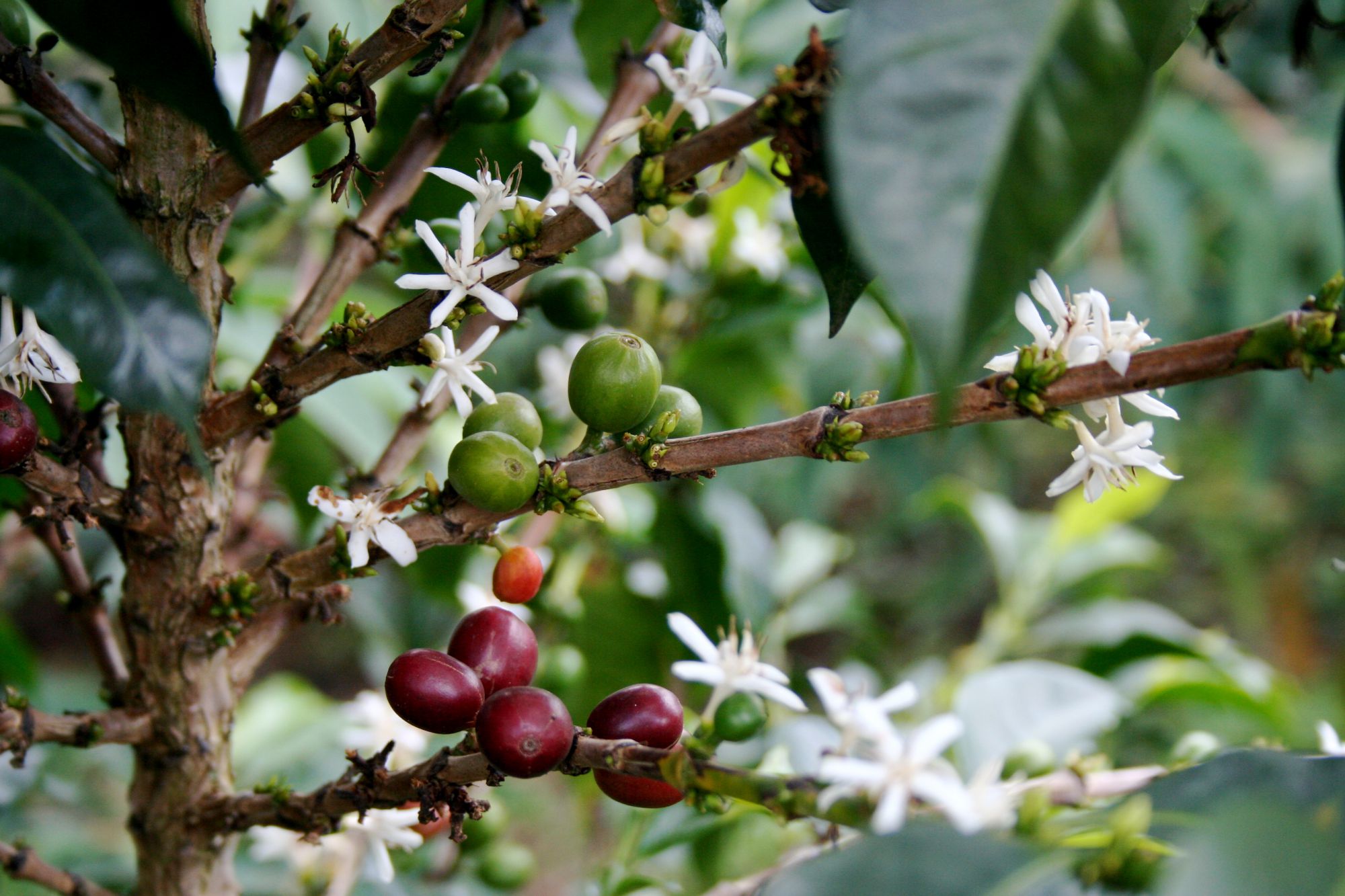The Origin of Coffee name and the introduction of long History and Culture Coffee must be seen by beginners
Coffee history
The origin of the name of coffee
It starts with the Ethiopian legend of the 5th century AD, when the sheep of the shepherd boy Kadi was so excited after eating a strange red fruit that Kadi and his companions could not help but give it a try, feeling refreshed and weary.
Spread ten, ten hundred, this red fruit has since become a part of the local food culture, this red fruit is coffee. After that, coffee was introduced into the Arab world, with Yemen as the first stop. At that time, Arabs called coffee qahwa, which means good wine. Today's coffee is pronounced from this.
The Turks changed qahwa into Turkish pronounced kahwe, the Venetians changed kahwe into Italian caffee, and finally the British replaced a with o to become what is now known as coffee.
Legends
At present, coffee has become an indispensable drink in our lives, but in the long journey of looking for coffee, we can seem to feel the endless romance of people's enthusiasm and adventure.
How on earth did coffee, quietly grown in the depths of the quiet forest, be discovered and widely accepted all over the world? And how did it start to grow? Among the countless legends of coffee discovery, are there two great legends that are the most enjoyable? Is that the Story of the Shepherd and the Arab Monk? The former is the Christian discovery theory, and the latter is the Islamic theory?
The Story of the Shepherd
There was a shepherd in Ethiopia in the 16th century. One day he found his sheep bouncing and bouncing. He thought it was very strange. After careful observation, he realized that the sheep had eaten only one kind of red fruit.
So he took the fruit and distributed it to the monks in the monastery, and all of them felt refreshed after eating it. It is said that the fruit was used as a refreshing medicine and was well received throughout his life.
Arab monks
In 1258, Shek, the chief who was deported by his people for committing a crime? When Omar wandered to Wassaba (in Arabia), far from his hometown of Mocha, he was too hungry and tired to walk any more. when he was resting on the root of a tree, he found a bird flying on the branch, singing in a melodious voice he had never heard before.
When he looked closely, he found that the bird opened its throat and made a wonderful cry after pecking at the fruit on the branch, so he picked all the fruit in the area and boiled it with water. After that, he began to exude a strong fragrance. After drinking it, he not only felt good, but also felt tired physically and mentally. So he picked many of these magical fruits and brought them soup to drink whenever there were patients. finally, because of his good deeds everywhere, the people in his hometown forgave him for his sins, let him go back to Mocha, and respected him as a "saint". In addition, one of the most romantic stories about coffee is about Gabriel, a French naval officer on the island of Matinique. Mathieu. De. Klee's. When he was about to leave Paris, he managed to get some coffee trees and decided to take them back to Martinique.
That's about 1720 or I723. He may also have traveled back and forth twice, because the first inoculation did not survive. To be sure, in the end, virtue. Klee set sail from Nantes with one of the best saplings that had been carefully cared for. The saplings are kept in a glass box on the deck, which can prevent sea water from splashing and keep warm.
De Klee's diary describes how his ship was threatened by Tunis pirates and how he survived a storm. The diary also mentioned that there was a man on board who was jealous of him in an attempt to destroy the young tree and even broke a branch in a struggle. Then the boat ran aground and the drinking water could not be sufficient, so Dirkley watered the saplings with the water he drank.
The spread and development of coffee
European historians argue that as early as 800 years ago, there were artificial coffee trees for trade in Yemen in the southern Arabian Peninsula, and there was historical evidence that at that time, there was indeed trade across the Red Sea between Yemen and Ethiopia.
It is speculated that if the use of coffee was discovered by Ethiopians, coffee was introduced into the Arabian Peninsula during this period and was widely grown in Yemen.
Even so, there is still a myth in the Arabian Peninsula: "once a flock of big birds with ripe coffee fruits flew across the Red Sea and dropped them in Yemen, so that coffee began to grow in Yemen."
There is no way to prove the myth, and so far there is no historical evidence to prove the exact time and reason why the coffee arrived in the Arabian Peninsula, but one thing is certain that Ethiopia did invade the southern tip of the Arabian Peninsula in 525. And ruled Yemen for half a century.
As a result, people tend to believe that coffee was introduced into the Arabian Peninsula during this period. In the very long centuries since then, coffee has been used as a refreshing, refreshing or special medicine for Islamists to cure diseases in Arabian Peninsula. at the same time, people's methods of making coffee have become more and more perfect.
It was not until around the 15th century that coffee was widely spread among ordinary people as a popular drink. At the end of the 16th century, the story of Arabs drinking "black molasses boiled from black seeds" was spread verbally among many European travelers. It can be confirmed that the Arabs at that time already knew how to bake and cook coffee.

Source: Xushang discount website
Important Notice :
前街咖啡 FrontStreet Coffee has moved to new addredd:
FrontStreet Coffee Address: 315,Donghua East Road,GuangZhou
Tel:020 38364473
- Prev

Excellent cup of coffee, champion coffee bean COE evaluation table, COE coffee cup meter
COE coffee cup meter, excellent cup of boutique coffee, extraordinary cup champion coffee bean COE evaluation table Cup of Excellence referred to as COE. "COE coffee cup meter, excellent cup boutique coffee, extraordinary cup champion coffee bean COE evaluation table" COE--Cup of Excellence Cup of Excellence referred to as COE, a boutique coffee rating system. Cup of Excellenc
- Next

How much do you need to foam? The difference between a latte and a cappuccino? How much milk foam do you need?
Latte is Italian concentrated, milk, with foam. So is the cappuccino. So what's the difference? It's very simple, it's the difference between milk and foam. But the difference between milk and foam may bring about a bigger difference in taste than we like. Latte has something to do with milk from the origin of the name. It is true that the milk foam of a latte is better than that of a cappuccino
Related
- What is the meaning of lactic acid fermentation with coffee bean treatment?
- How to judge the state of foam by sound?
- How does the latte pull out the unicorn pattern? Come to get for a little trick to improve the flower pull!
- Will flower pulling affect the taste of the latte?
- Do you know the history of coffee?
- The difference between honey treatment and sun washing what is raisin honey treatment?
- What kind of milk can a novice use to make coffee foam to keep the foam longer? The correct method and skills of milking tutorial sharing
- Why do washed coffee beans taste sour? Flavor characteristics of washed Coffee
- Introduction to the skill of how to practice the size and height of water injection around the circle of hand-brewed coffee
- How do beginners practice coffee flower drawing from scratch?

